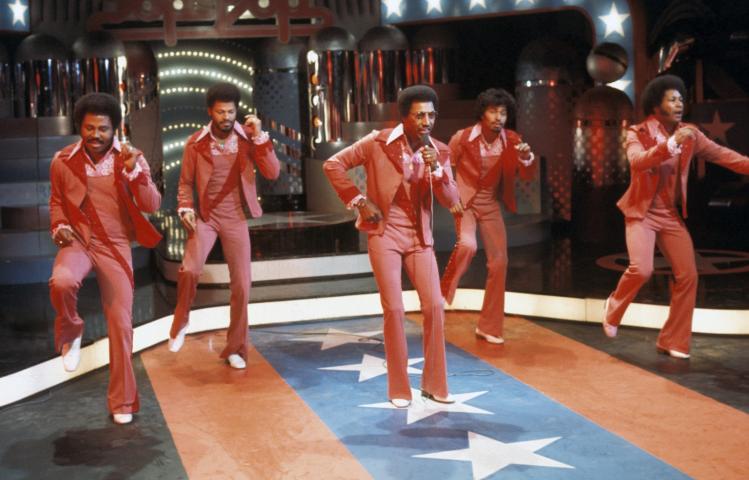
“Good morning, my soul-licious listeners” is how Felix Hernandez recently greeted his Saturday-morning audience, the many thousands who tune in for his long-running Rhythm Revue show, which airs and streams on WBGO, Newark’s public-radio outlet. I’ve counted myself among them since early 1995, when my boss on the copy desk of the magazine I worked at informed me of the show’s existence. Nearing what then seemed to me the wise old age of forty, he possessed an edgy wit and encyclopedic knowledge of mid-century American jazz and soul, his headlines sometimes containing sly references to Charlie Parker or Wilson Pickett. On Mondays he would grill me about what I’d heard on Rhythm Revue that weekend, and, clearly more important, what I’d liked. Bill Withers’s “Lovely Day” or Al Green’s “I Can’t Get Next to You”? Aretha Franklin’s “Think” or Little Sister’s “You’re the One”? Pickett’s version of “You Keep Me Hangin’ On,” or The Supremes’—and why? It was like a test I had to pass to gain his trust, which I think I did, eventually. When I told him a few months later that I’d received the special three-CD Rhythm Revue compilation for giving money during WBGO’s spring pledge drive, he reacted as if I’d been saved from perdition.
That compilation came packaged in a sturdy cardboard booklet filled with liner notes and classic black-and-white photos of the artists, along with a touchingly sincere expression of gratitude from Hernandez himself: “Despite the original time slot (Saturday mornings 6 to 10), Rhythm Revue found a large audience of people who were starving for R&B sounds of the 1950s, ’60s, and ’70s, sounds which had disappeared from radio by the 1980s…. For your loyalty and support, I thank you, the listeners.” “I Thank You” also happens to be the title of a Sam & Dave classic that Hernandez often plays, and I have to believe the echo was intentional. Over the years, Hernandez’s playlist has grown to include R&B sounds from the ’80s and ’90s, with artists like Prince, Lisa Stansfield, and Boyz II Men joining the roster. The show is so popular that Hernandez long ago spun off an incarnated version, the Rhythm Revue Dance Party, held at venues in New York and New Jersey and drawing as many as three thousand people in its heyday (the pandemic put a crimp in things, but the party is back to being held on a regular basis). Recently, WBGO added a few hours of Rhythm Revue to its Sunday schedule.
The WBGO website refers to Hernandez as “the maestro of the groove,” which is appropriate, since he’s no latter-day barker of the pop-music airwaves. His appeal lies in the quiet but obvious joy with which he shares the songs he’s selected and steps aside to let the music take over. He’ll play five or six tracks in a row; sometimes he introduces what’s to come, other times he recaps what he just played. There’s no shtick, no act, and—this being public radio—no commercials. Occasionally he’ll share lesser-known details about a certain producer or backing musician or the provenance of a lyric, yet with none of the ponderous self-importance of stereotypical FM personalities. Hernandez traces his love for music to his Philadelphia upbringing; he listened to local R&B radio, and his Cuban father played a lot of Celia Cruz around the house. As a student at Temple University, he hosted his own show. He was still a child when his mother told him he should play records for a living: “She wanted her kids to be happy before they were wealthy,” he told the New York Times in 2006. On the air, Hernandez definitely sounds happy.
Rhythm Revue has been a pretty regular part of my Saturday for going on three decades. It was on the car radio when I took my children to their soccer games and when I drove them off to college. It played when I was painting the living room and assembling IKEA bookshelves; it plays when I’m paying the bills. These days, with the kids grown and out of the house, I have the time and space to listen more attentively. Streaming has made it easier (for whatever reason, WBGO’s over-the-air signal isn’t reliably received within the walls of our Brooklyn apartment), and then the pandemic helped further harden the habit. It’s not as if by this time I haven’t heard, many times over, most of the songs Hernandez plays. The opening piano note of “Everyday People” by Sly & the Family Stone has become unmistakable, like the cymbal splash announcing Tavares’s “Heaven Must Be Missing an Angel.” I look forward to hearing certain mainstays of Hernandez’s playlist: David Ruffin’s “Walk Away from Love,” Stevie Wonder’s “I Was Made to Love Her,” Odyssey’s “Native New Yorker.” This routine is kind of the point, though, a regular weekly observance whose reassuring familiarity has analogues in other realms. Reaching the end of another show leaves this listener feeling renewed and somehow unburdened of whatever weight the intervening week had lowered on him. The sense of having shared something with a wider community—the communion of soul-licious listeners across the New York metro area and increasingly beyond, whose names Hernandez meaningfully recites when he plays their requests—also has something to do with it. It’s an old-fashioned approach—retro, to use a word he uses a lot—and the vibe is unfailingly generous and welcoming.
Soon enough, Rhythm Revue will have been airing for forty years, and lately, it’s shaded with a sense of time’s passage. Hernandez’s voice sounds different than it did in the early ’90s, and his programming seems more frequently to make tributes to artists and songwriters who’ve recently passed. A seventy-something musician friend of mine has noticed something like this in his own field; he says it’s becoming harder to find session-mates steeped in the songs and styles of the old R&B masters. Of course, their music will live on in the recordings, and even among the familiar tracks Hernandez shares there’s always an unexpected surprise. One dark Saturday early in the pandemic, in the closing part of his show, he played a song I’d somehow missed before: Barbara Lewis’s 1961 “Baby, I’m Yours.” It’s a fairly typical pop confection with a pretty interesting backstory (Lewis initially didn’t feel up to the vocal demands), and it’s since been covered by everyone from Tanya Tucker to Cher. That day the lyrics and Lewis’s innocently lush performance—at once plaintive and hopeful, vulnerable and assuring—cut through everything else: “Baby, I’m yours (baby, I’m yours) / And I’ll be yours (yours) until two and two is three / Yours (yours) until the mountain crumbles to the sea / In other words, until eternity.” Why that song, at that hour? Sometimes, things just touch the soul. In the age of Spotify and instant access to every song ever recorded, I’ve learned to be alert to such unanticipated moments, which Rhythm Revue still manages to deliver. They really do come as gifts. For these I thank you, maestro of the groove.
